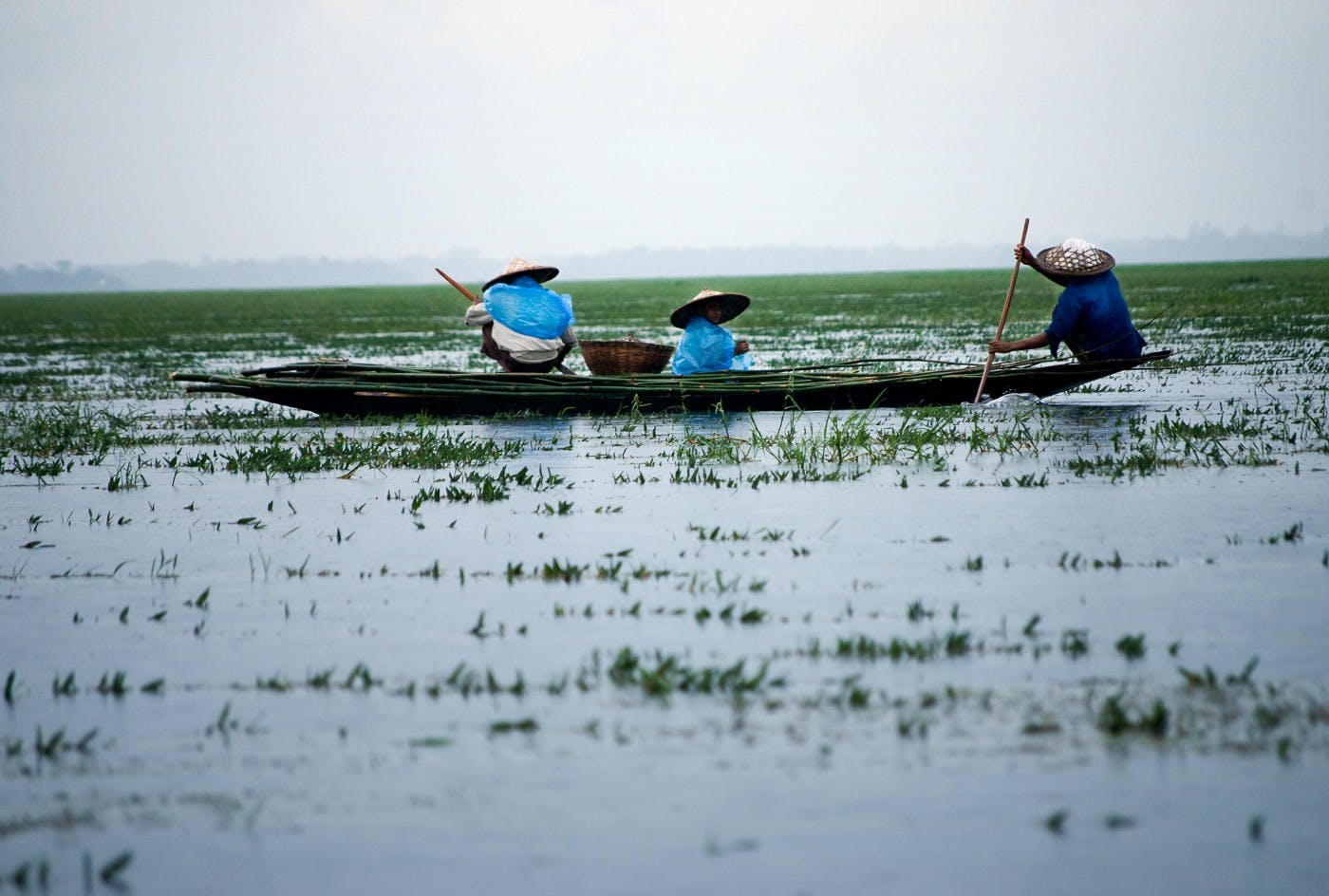How climate change is bearing down on Bangladesh’s sovereign credit outlook

Bernhard Obenhuber
Aug 09, 2020

It’s a story playing out all over the world: as the climate warms, once-infrequent extreme weather events hit with ever-greater regularity, making it harder each time to fully recover before the next disaster hits.
“This is a one in 20-year flood event that we are having now for the fifth time in the last 20 years,” Dr Saleemul Huq, director of the International Centre for Climate Change and Development in Bangladesh, told The Independent newspaper in the wake of widespread flooding that has left a third of the low-lying country below water.
“I think that this is definitely linked to climate change,” he added.
Bangladesh has made great strides in reducing poverty over recent years, cutting the proportion of its population subsisting below the poverty level from 44.2% in 1991 to just 14.8% in 2016/17, according to the World Bank.
But, as the International Monetary Fund (IMF) notes in a recent report on the subject, climate change will act as a drag on the country’s economy in the years to come. With 60% of its land mass less than five metres above sea-level, the Intergovernmental Panel on Climate Change estimates that, by 2050, the country could have lost 17% of its land area and 30% of its food production.
Before that date, the economic costs of climate will continue to rise. According to the 2018 Global Climate Risk Index, extreme weather events cost Bangladesh the equivalent of an average of 0.68% of GDP each year between 1997 and 2016: the IMF report quotes a recent study by the Bangladesh Ministry of Finance that forecasts that figure rising to between 1.5% and 3% of GDP by 2031.
Compounding challenges
In addition, the country faces considerable economic, social and governance challenges, including an urgent need to create employment for a young and fast-growing population, the need to invest in energy and transport infrastructure, a complex and unpredictable regulatory framework and the management of rapid urbanisation, the World Bank observes.
This combination of economic and ESG challenges means that, according to the CountryRisk.io ESG model, its sovereign debt is rated BB-, or junk level. All things being equal, more frequent flooding caused by climate change will lead to lower economic growth and a worsening fiscal position.
The government is not powerless. In its latest assessment of the country, the IMF praises the authorities’ efforts to address the country’s vulnerabilities to climate change and natural disasters, and their “continued efforts to create fiscal space for adaptation and mitigation, managing the impact of natural disasters, and promoting climate-friendly investments”.
It notes that Bangladesh introduced in 2014 a “Climate Fiscal Framework” which tracks climate change spending in government budgets. It shows that, for the 2018–19 budget, the government allocated 9.7% of total spending to climate change adaptation and mitigation activities, mostly to adaptation measures such as crop protection and flood-resilient infrastructure.
Coal power rethink
In terms of mitigation, Bangladesh would do well to rethink its pipeline of coal-fired power plants. The Institute for Energy Economics and Financial Analysis reported comments from state minister for power Nasrul Hamid in late June that the Bangladesh government is “seriously reconsidering” its plans for almost 18GW of proposed coal-fired plants. Instead, it may limit total coal plant capacity to 5GW — just above the 4.4GW either operational or close to completion.
The country might also seek to tap the growing green bond market to help fund mitigation and adaptation spending. Thus far, developing country sovereigns are relatively underrepresented within the market, although Indonesia, Nigeria, Fiji and the Seychelles have issued green sovereign bonds, according to the Climate Bonds Initiative. Given the relative dearth of such issuers, green bond investors are likely to welcome the diversification that a Bangladeshi green sovereign bond would provide.
Certainly, the government will need all the help it can get as it seeks to meet the challenges posed by climate change in the decades to come. That extreme weather and natural disasters will create headwinds for its economy and its people is beyond doubt; what is less clear is how well the country will prepare itself to weather the storm.
